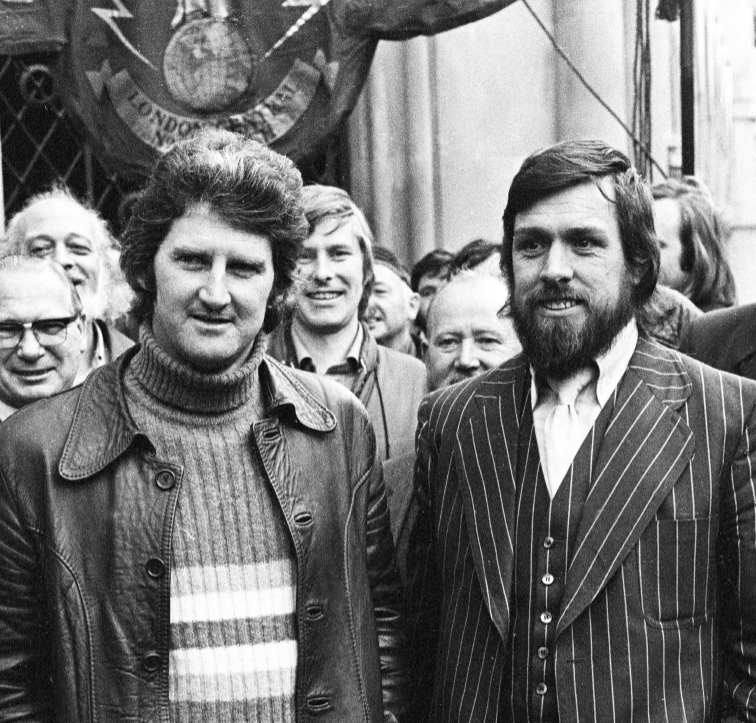During the July 1972 national builders’ strike, flying pickets mobilised to support the industrial action. The strike was Britain’s first cross‑industry walkout and it was legal, at the time, for sympathetic trade unionists to take secondary action.

Following the strike, 24 pickets in North Wales and Shrewsbury appeared before Shrewsbury Crown Court in 1973 and 1974, accused of conspiracy to intimidate, unlawful assembly and affray.
Two received prison sentences, Des Warren for three years and Ricky Tomlinson for two. Others received suspended sentences.
The SDS reported on the support group set up to defend Warren and Tomlinson. The Shrewsbury Two, Tomlinson and Warren, were named in the 1972 SDS Annual Report. However, Tomlinson’s application to become a core participant in the Inquiry was rejected.
Nearly five decades on, the Court of Appeal quashed the convictions of 14 members of the Shrewsbury 24, prosecuted for picketing during the strike, in R v Warren & Others [2021] EWCA Crim 413.
The court found the trials unfair due to the destruction of original witness statements by police not disclosed to the defence team. This breached the duty of disclosure and undermined the safety of the convictions.
In March 2021 the Court of Appeal ruled that these omissions rendered the verdicts unsafe, bringing long-overdue justice to the defendants and their supporters who had campaigned for nearly five decades to be exonerated.
Tragically Des Warren did not live to see his day in court – he had died in 2004, having contracted Parkinson’s disease.
As part of the case for the appellants, a report by Dr Eveline Lubbers addressed covert UK state involvement in the 1973 ITV documentary The Red Under the Bed, which aired during the Shrewsbury 24 trials. Backed by Prime Minister Edward Heath, the Information Research Department (IRD) and the anti-communist IRIS group supplied false, discrediting material to the filmmakers.
The documentary portrayed union pickets as violent extremists, which would have shaped public opinion and could have influenced jury members. Lubbers’ report argues that the documentary played a prejudicial role when the case came to trial.
Sources:
Eileen Turnbull: Remembering the 1972 Builders’ Strike.
